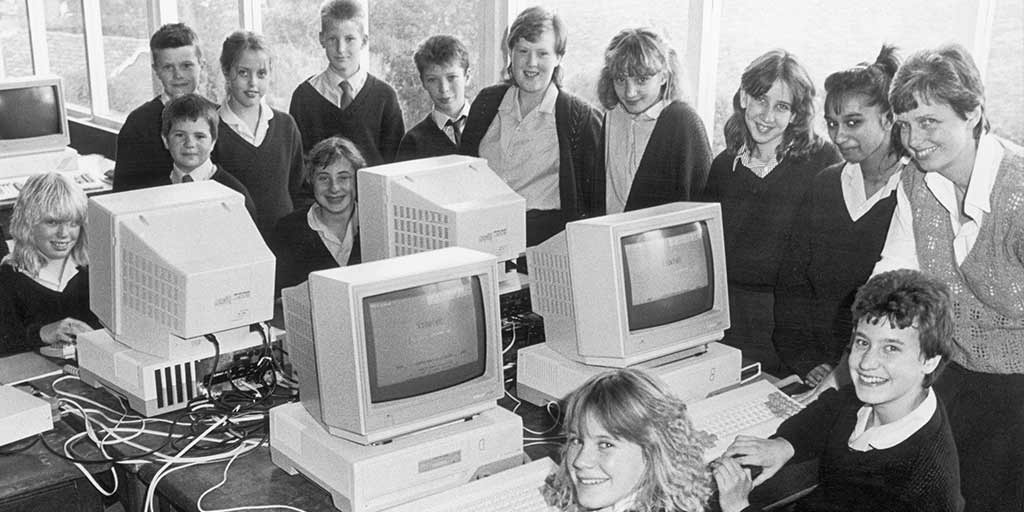Transforming education: 40 years of assessments at Cambridge CEM
Over the past four decades, technology has played a crucial role in shaping the development of adaptive baseline assessments at Cambridge CEM. I’m...

Login | Support | Contact us
Cambridge CEM : Sep 26, 2023 11:21:47 AM
3 min read

Karen Barker, Deputy Head at Finborough School, shares her experiences of using Cambridge CEM assessments and the impact they have had on her students.
I first started using CEM assessments with my students around 14 years ago. It was very different in those days!
The assessment was paper based multiple-choice questions in booklets with students giving their answers with pencil and Optical Character Recognition (OCR) sheets where they had to figure out which box they had to fill in. It was actually quite challenging for some of our students, but that's how it was, and that's how we did it.
It was nothing like the adaptive assessment they do now. The computer adaptive assessment is great!
When they have to answer questions on a normal flat test, it can be quite demoralising for them because it feels as if we are setting them up to fail. Whereas with the adaptive tests, the students only see the questions that are at the right level for them. It makes all the difference to them.
Over the years, I have seen time and again the impact that having the assessments has on our students. It tells you things that you just wouldn’t have known otherwise
They help you to identify potential issues early and it supports students across the whole spectrum of ability.
For instance, there is one student in particular, whose parents came to me because they were concerned about his overall performance in school. He was a very conscientious and articulate student, but quite easily distracted and not achieving what we would have expected.
When I pulled up the data from the assessments, I instantly spotted that there was an issue with his non-verbal reasoning score. We then looked at the breakdown of his scores and had conversations with his teachers, and we identified that there was potential for ADHD. This is now being followed up with additional tests and we have been able to support him much better.
We use the data as an integral part of our assessment programme. We use the data to see the bigger picture, of individuals and the whole cohort, to check on students’ needs and their progress.
You get such a vast amount of data from the assessments, but it’s the predictions and the chances graphs that we really get a lot from. We take them and make them aspirational, so they can aim higher, and it has a big impact on motivation. Because it shows the students that they can do so much more than they think they can, and it enables them to work to their true potential.
We take overseas students at the school and so having the international comparisons is also helpful. The data shows you the students’ strengths and weaknesses, but you can also explain to the parents where they sit in comparison to other students like them.
It’s always helpful having the data in conversations with parents, to give reassurance about the students’ development.
There have been so many changes! The biggest one, of course, is the move to adaptive tests which has been a real game-changer. But the different kinds of data that is now available, like the comparisons with other schools and the parent reports, and the way it is presented on the new platform, is great.
The tech support, the customer service, the quality of the data and the training have always been really good, but the new initiatives like the Cambridge CEM Networks and the Professional Development means that we get that additional layer of support with the data.
In fact, I recently spoke at the Independent Schools Association conference about the way we use the Cambridge CEM data to inform teaching and learning, and how it forms part of our whole school assessment programme as well as explaining how the discrepancies in students’ scores can impact progress.
There was so much excitement in the room when the teachers were looking at the Cambridge CEM data and seeing the potential it has to have an impact.
The atmosphere was buzzing, and it was great to see so many people as excited about it as me!
Join our webinar with leading assessment specialists - 10th October
Karen trained as a secondary science teacher, but her 30-year career has taken her into primary education, A-Level psychology teaching and special education.
She is a Deputy Head & SENDCo, responsible for Learning Enhancement and Development at the school that currently holds the ISA Award for Outstanding Provision for Learning Support.
As a specialist teacher assessor, who holds a diagnostic Assessment Practicing Certificate, she has extensive experience in assessment and data interpretation. She has been responsible for developing whole school assessment and works with teachers to use data effectively to inform teaching and learning, as well as explaining the discrepancies, which can impact progress.

Over the past four decades, technology has played a crucial role in shaping the development of adaptive baseline assessments at Cambridge CEM. I’m...

By Lucy Baker and Suzanne Tipping, Assessment Advisors Multi-academy trusts (MATs) have become a prevalent model in the education sector, aimed at...

The beginning of a school year is always the busiest. There’s so much to consider and do and plan and prepare for that it can feel overwhelming....